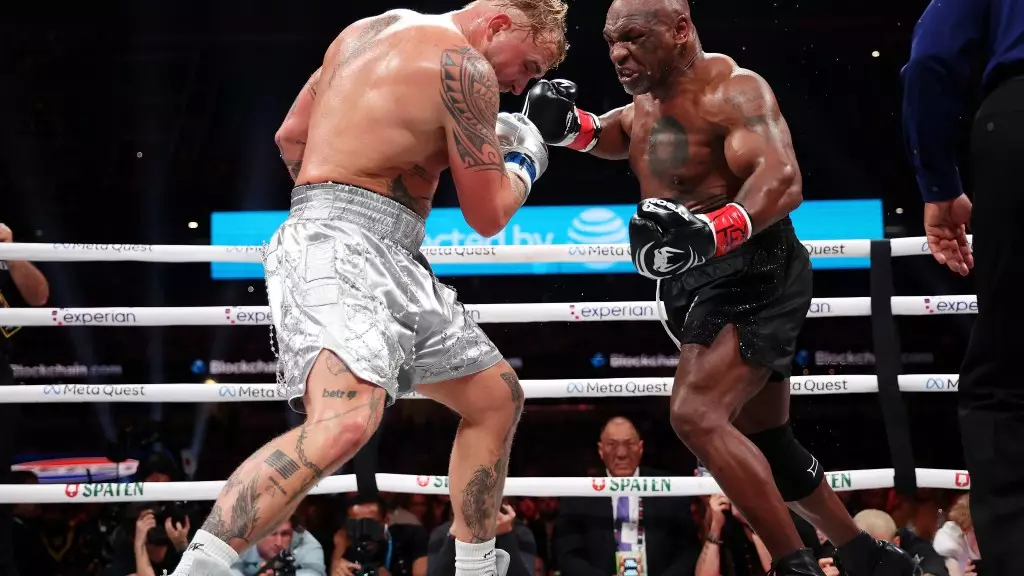In a recent boxing showdown that captivated fans and skeptics alike, former heavyweight champion Mike Tyson faced off against YouTube sensation Jake Paul at the AT&T Stadium. Despite Tyson being 58 years old and Paul at a youthful 27, the fight highlighted Tyson’s enduring resilience and sparked resilience even in Dana White, the controversial figure of UFC fame. White publicly admitted to being astonished by Tyson’s performance, which displayed an unexpected level of competitiveness, particularly in the early rounds—a testament to Tyson’s lasting prowess despite his advanced age.
Many had dreaded the idea of Tyson entering the ring against the brash young Paul, fearing that age would inevitably become a formidable adversary. Dana White initially held reservations about Tyson’s ability to compete, given his physical condition, which included a knee brace and visible signs of his struggles. Yet, Tyson not only held his ground but sparked intrigue by performing more effectively than anyone anticipated in the first few rounds. White’s admission that he was wrong in underestimating Tyson’s capabilities underscores the boxing legend’s commitment and ability to surprise audiences, even after leaving the sport for years.
Despite Tyson’s commendable showing, Jake Paul’s performance left much to be desired. While he has built a reputation for being a formidable opponent in the ring, his inability to decisively engage with Tyson raised eyebrows. Paul publicly stated that he “cruised past” Tyson, choosing not to deliver any devastating blows, a claim that many critics found unconvincing. This self-restrained approach lessened the impact of the bout and seemed to echo a vague reluctance to face the legendary boxer fully. Critics might argue that in maintaining an understanding attitude towards Tyson, Paul missed an opportunity to elevate his standing as a legitimate fighter in today’s boxing world.
While opinions on the fight varied, one undeniable truth emerged: the financial stakes were sky-high. Both fighters walked away with substantial earnings, a common byproduct of high-profile events inclusive of legends like Tyson. White’s comments illuminate the broader implications of such matches, highlighting that when a figure as monumental as Tyson enters the ring, intrigue and profits naturally follow. The audience’s mixed feelings regarding Tyson’s performance stem from a desire for authenticity in the sport rather than just a money-making spectacle.
While the fight may not have conclusively determined a winner in the traditional sense, it certainly reignited discussions about Tyson’s legacy within boxing. His ability to engage and perform against a younger opponent has prompted admiration, indicating that despite age, some fighters possess an innate talent that transcends time. This match serves as a reminder that while Tyson might not be the champion he once was, his name alone still commands attention and respect in the boxing arena. As for Jake Paul, he must now navigate the challenge of building credibility in a sport where sheer bravado may not be enough to secure long-lasting respect. The dynamics of this fight have undoubtedly set the stage for future matchups within the hybrid realm of sports entertainment, forcing us to re-evaluate not just Tyson’s legacy but the very fabric of what defines performance in boxing today.

